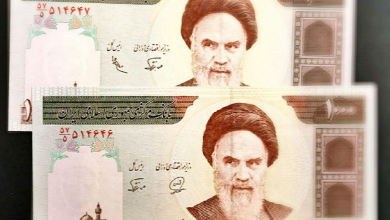
Depending on the topic of the research, I asked the respondents why they agreed. And I heard this answer several times: “Out of respect for the wishes of the sheikhs.” For example, I asked this question to students who were interested in music, photography, philosophy, or psychology, but was studying medicine against their will, and asked a man or a woman they knew had nothing to do with their current husband. I asked a girl or boy who forced his parents to perform religious rites against his will and they had a special envelope. There are other examples outside the scope of this article. There is one thing in common in all these examples: people enter into a lifestyle they do not like by “respecting the wishes of their elders,” that is, when they go one way, they seek another. In some cases, doctors, electrical engineers, and lawyers already took art classes for beginners in their 50s or 60s. When they reach the desires of the “elders”, they have entered the path of “old age” they desire. Respect the wishes of the elders to spend their whole lives in jealousy and remorse.
The phrase “respect for the wishes of adults” is short but needs social definition. If we remove the overlap in this sentence, we get the sentence: “I am completely against your will, but you are too old.” give up. “It looks like aging is getting older here, but it usually doesn’t.” For example, most people I’ve spoken to actually mean the father of the family and not the mother, and most interestingly, there is usually a sense of dread to follow the word pride.
Respecting the wishes of the elderly is one of the traditional values that at first glance seem like an old value that no longer exists. But under the influence of the ideas of the late German sociologist Erich Beck, these values can be said to be “lazy”.(1) He died but is still alive.(2). Respect seems to be one of the concepts that must be updated along with social developments.
If we consider the course of social change based on the concepts of “population” and “individualism”, the tendency of societies to reduce the domination and influence of the population as much as possible is against the consolidation of apartheid. . With the expansion of cities and the emergence of specialized institutions, the power of ethnic groups, tribes, clans, and social systems such as “whitebeard”, “patriarchy” and “patriarchy” waned, their dominance over members of society waned, and opportunities for individualism increased. The nuclear family has been the dominant form of the family in recent decades. The dominance of tribes and social structures fell sharply. Today we are witnessing the spread of democratic processes in the nuclear family, but the nuclear family in some cases participates in the reproduction of traditional values, one of the consequences of which is the fragility of separation. . Indeed, in some cases, the family changes the essence of the tribe or clan and imposes powers that lead to the destruction of the individual and his aspirations. Perhaps that is why the hypothesis that the nuclear family increases their personal preferences in various ways will be weakened in the coming decades. Traditional society is to respect the wishes of adults. Humans should be free to become the architects of their lives, regardless of the wishes of others. It is difficult, but we have to adapt to the requirements of the new world.
The question may be, what is the solution? Conversation, communication and mutual understanding. Conversation regardless of sources of strength, ie wealth, gender or age.
attachments:
(1) Zombie Sections
(2) bak, yo. ,& Beck-Gernsheim, E (2002). Loss of orthodoxy: personalization and “possible liberties”. it is in Privatization: organizational and its social and political consequences (pp. 1-21). Sage Publications Ltd.
* Member of Sociology Department, Gilan University










